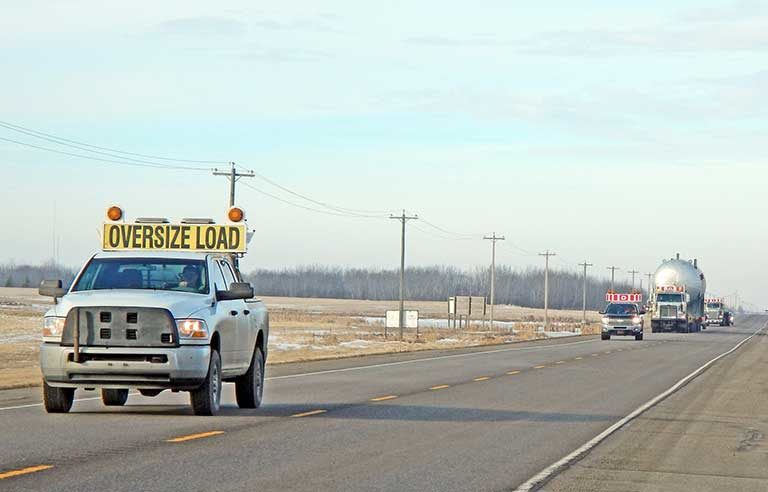
When it comes to transporting oversized loads on the highways of Nebraska, safety is of paramount importance. This is where pilot cars come in – the unsung heroes of the transportation industry. Pilot cars, also known as escort vehicles or flag cars, play a crucial role in ensuring the safe and efficient movement of oversized loads, such as wide loads, tall structures, and heavy equipment, across the state.
The Role of Pilot Cars
Why are Pilot Cars Necessary?
- Ensuring safety: Pilot cars help alert other motorists of the presence of an oversized load on the road, reducing the risk of accidents.
- Assisting the driver: Pilot cars communicate with the driver of the oversized load, providing guidance on navigating through challenging road conditions and obstacles.
- Regulatory compliance: Pilot cars ensure that the transportation of oversized loads complies with state regulations and permits.
Responsibilities of Pilot Car Drivers
- Advance route inspection: Before the oversized load begins its journey, pilot car drivers inspect the route to identify any potential hazards or obstacles.
- Warning other motorists: Pilot car drivers use warning signs, flags, and flashing lights to alert other drivers of the upcoming oversized load.
- Communicating with the driver: Clear communication between the pilot car driver and the driver of the oversized load is crucial for safe navigation.
Requirements for Pilot Car Drivers
Licensing and Certification
- In Nebraska, pilot car drivers are required to hold a valid driver's license and may need to obtain a certification specifically for escorting oversized loads.
- Training: Pilot car drivers undergo training on safety procedures, communication protocols, and state regulations regarding oversized load transportation.
Vehicle Requirements
- Pilot cars must meet certain specifications, including the display of warning signs, flags, and flashing lights for enhanced visibility.
- Equipment: Pilot cars are equipped with two-way radios or other communication devices to stay in contact with the driver of the oversized load.
Challenges Faced by Pilot Car Drivers
Weather Conditions
- Driving in inclement weather, such as heavy rain, snow, or fog, can pose challenges for pilot car drivers, affecting visibility and road conditions.
- Adaptability: Pilot car drivers must be prepared to adjust their driving tactics and speed based on weather conditions to ensure the safety of the oversized load.
Traffic Management
- Navigating through heavy traffic or congested areas requires patience and quick decision-making on the part of pilot car drivers.
- Coordinating with law enforcement: Pilot car drivers may need to work closely with law enforcement officers to manage traffic flow and ensure the safe passage of the oversized load.
Importance of Pilot Cars in Nebraska
Promoting Safety
- By escorting oversized loads, pilot cars help minimize the risk of accidents and protect both the drivers of the oversized loads and other motorists on the road.
- Compliance with regulations: Pilot cars ensure that oversized load transportation in Nebraska adheres to state laws and regulations, avoiding potential fines or penalties.
Efficiency in Transportation
- With the assistance of pilot cars, oversized loads can be transported more efficiently and smoothly, reducing delays and ensuring timely delivery.
- Route planning: Pilot car drivers play a crucial role in planning and executing the safest and most efficient route for transporting oversized loads across Nebraska.